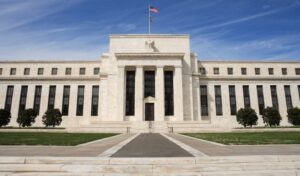
Experts discuss the regulation of bank overdraft fees.
Did you know that you can require your bank to decline a transaction instead of charging an overdraft fee?
If not, you are not alone—in a recent study, 70 percent of Americans who were charged overdraft fees did not know they had the right to have their bank decline the transaction instead of charging them a fee.
In 2010, rulemakers amended Regulation E to require financial institutions to provide notice to consumers and have them opt-in to overdraft fees. But some advocates believe this regulation does not go far enough to protect consumers from predatory banking practices associated with overdraft fees.
Large banks such as Capital One and Bank of America recently decided to end or greatly reduce the use of these fees, despite making an average of $15 billion a year in overdraft fees. Some commentators say this shift comes on the heels of increased interest in regulating these types of fees at the federal level.
The Consumer Financial Protection Bureau (CFPB) for example, has stated its intention to intervene in overdraft practices to restore proper competition. CFPB director, Rohit Chopra, expressed concerns that banks depend on overdraft fees in their profit model, rather than compete for the best services and interest rates, which has bad outcomes for consumers.
U.S. Senators Elizabeth Warren (D-Mass.) and Cory Booker (D-N.J.) introduced the Stop Overdraft Profiteering Act of 2021 last August to regulate profits from overdraft fees in the United States. They drafted the act in response to growing concerns about predatory banking practices, which predominantly impact low-income communities.
According to the CFPB, 80 percent of revenue from overdraft fees comes from just 9 percent of customers, who are charged 10 or more times a year for spending above their balance. So, low-income individuals pay three times as much to maintain their checking accounts.
In this week’s Saturday Seminar, experts discuss recent scholarship on the regulation of overdraft fees.
- Do policies that prohibit aggressive overdraft fees help low-income consumers? Marco Di Maggio, Angela Ma, and Emily Williams of Harvard Business School argue that they do in a recent working paper. They focus on the practice of banks processing transactions from most expensive to least expensive, which can generate more overdraft fees if customers do not have enough funds in their account. Maggio, Ma, and Williams analyzed data on banks that were banned from this practice after lawsuits and found that households experienced better credit health outcomes. Consumers gained better credit scores, higher credit card limits, and better access to mainstream, likely cheaper credit.
- CFPB recently published a report on overdraft fees at smaller financial institutions by Nicole Kelly and Éva Nagypál, Senior Economist at CFPB. In the report, Kelly and Nagypál examine overdraft policies and their impact on consumers at financial institutions with assets under $10 billion with “core processors.” They found that smaller financial institutions had smaller per-item overdraft fees than large banks, which places less of a burden on low-income consumers who more frequently overdraft. Smaller financial institutions served by core processors, however, charged similar overdraft fees to larger banks. Their data set also showed that banks with overdraft fee opt-in programs charged a higher number of overdraft fees and collected more revenue from overdraft overall. Kelly and Nagypál emphasize the importance of studying the impact of varying overdraft policies at smaller financial institutions, as these institutions make up a large portion of the financial sector and have different risks and benefits for consumers.
- In an article in Columbia Law Review, Natasha Sarin of University of Pennsylvania Carey Law School explains some consequences of the regulation that prevents banks from imposing overdraft fees on consumers unless they have explicitly opted-in to overdraft protection. Sarin notes that the Federal Reserve Board implemented the rule to allow consumers to decide whether to use overdraft protection and accordingly, the number of consumers who opted-in decreased dramatically. Sarin argues that an unintended effect of this reduction in over-drafting consumers is that banks, to keep from losing revenue, target customers who frequently over-draft to opt-in. These customers, Sarin emphasizes, are frequently poor and financially unsophisticated. Sarin calls for regulators to use the data of how banks reacted to this regulation to improve regulatory efficacy.
- Banks in the United States charge higher overdraft fees compared to banks in Israel and the United Kingdom, Aluma Zernik of Pagaya explains in an article in Georgetown Journal of Poverty Law & Policy. Zernik underscores that overdraft fees in the United States are sometimes non-marginal in relation to the overdraft cost because of less strict regulation—especially on exploitative offers that bundle checking accounts with overdraft services. On the other hand, Zernik says that banks in Israel and the United Kingdom do not charge higher fees because of the increased risk of regulatory action if the industry were to raise fees in these countries. Zernik attributes this difference in fee amounts to the increased “regulatory and reputational risks” in the United Kingdom and Israel that “curb banks’ ability to exploit such market failures.”
- Would limiting overdraft charges help low-income households benefit from banking services? Jennifer L. Dlugosz of the Board of Governors of the Federal Reserve System, Donald P. Morgan of the Federal Reserve Bank of New York, and Brian T. Melzer of the Tuck School of Business argue “yes” in a report provided in cooperation with the Federal Reserve Bank of New York. They found that low-income households in states with overdraft coverage were more likely to have a bank account. In addition, high-income households did not show any change in bank account ownership, which Dlugosz, Morgan, and Melzer cite to demonstrate that overdraft limits only affect low-income households.
- The Consumer Financial Protection Bureau should update the model form that financial institutions use for getting consumers to opt-in to their overdraft service, according to Jonice Gray Tucker of Buckley LLP and several coauthors in an article in The Business Lawyer. Consumers have a private right of action against financial institutions that do not get their opt-in consent, but Congress created a safe harbor for financial institutions that use a model form or a substantially similar substitute. Tucker and her coauthors argue that the model form should help consumers make decisions about overdraft today, but it reflects the industry’s overdraft practices in 2009 and puts financial institutions at risk of non-compliance with financial legislation.
The Saturday Seminar is a weekly feature that aims to put into written form the kind of content that would be conveyed in a live seminar involving regulatory experts. Each week, The Regulatory Review publishes a brief overview of a selected regulatory topic and then distills recent research and scholarly writing on that topic.



